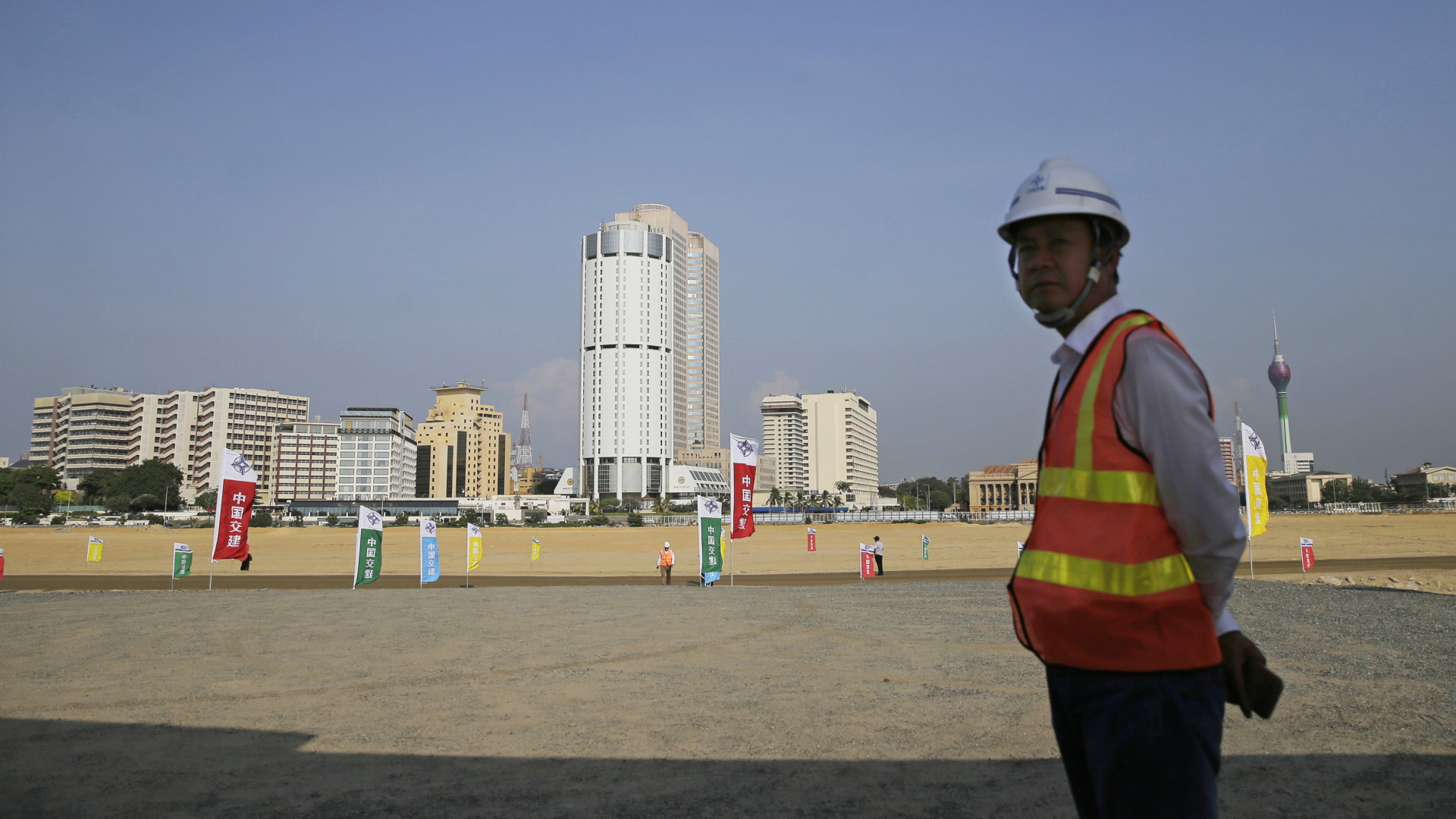Criticism of China’s economic project Headwind on the “New Silk Road”
Status: 06/11/2021 12:58 p.m.
China is expanding its influence worldwide, and the “New Silk Road” is intended to further strengthen the country. But the criticism of the project is growing. At the G7 meeting, the Australian head of government wants to report on his experiences. From Steffen Wurzel, ARD studio Shanghai Ding Laisong from the customs authority of the Chinese port city of Ningbo was satisfied at the beginning of the week: Trade with the states of the so-called “New Silk Road” had increased by 30 percent, he said on the Chinese state television broadcaster CCTV. In the case of trade with the particularly committed Silk Road countries in Central and East Asia, the plus is even 50 percent.
Sri Lanka regrets cooperation
China’s state and party leadership continues to sell its controversial strategy and trade project “New Silk Road” within the People’s Republic as a great success. In numerous partner countries, however, the initial enthusiasm for the project has given way to sober insight. China’s state and party leadership has nothing to give away with the Silk Road. On the contrary: in many cases, the Silk Road partner countries have borrowed considerably – with Chinese state banks. This sometimes creates considerable dependencies. One example is the Hambantota port project in Sri Lanka. According to media reports, the expensive Silk Road port project has hardly brought the island state anything economically. Sri Lanka’s Foreign Minister Dinesh Gunawardena now openly speaks of a mistake in leasing the port on the southern tip of the country to China for 99 years.
One billion euros in debt for Montenegro
In Europe, too, it is now becoming clear what the Silk Road critics have been calling a debt trap for years: the Balkan state of Montenegro, for example, had borrowed around one billion euros in China for the construction of a nearly 180-kilometer-long motorway. The autobahn is far from finished. But now the repayment is due – and the EU accession candidate lacks the money. The mood has also changed in large industrialized countries: In Italy, Prime Minister Mario Draghi put the Silk Road cooperation with China on hold, and the government in Canberra has also completed two projects in Australia. Only smaller, more symbolic projects were affected, but China’s communist leadership reacted angrily. She described Australia’s decision as “unreasonable and provocative”.
Australia accuses China of “extortionate behavior”
It is becoming clear that the communist leadership sees itself increasingly on the defensive in the Silk Road project, officially known as “Yi Dai Yi Lu”. Australian Prime Minister Scott Morrison complained at an economic conference in Perth “blackmailing behavior” by states like China. “Where compulsive acts have no consequences, there is little incentive to restrain,” said Morrison. Australia’s prime minister called for the sanctioning mechanisms of the World Trade Organization to be strengthened. Because if blackmailing behavior has no consequences, there is no reason for the corresponding states to hold back.
The G7 summit in Cornwall The heads of state and government of the seven leading industrialized countries (G7) will meet from June 11th to 13th in Cornwall, southwest England. For the first time in two years, they will meet again in person in the afternoon. In addition to climate change, the conference will also focus on trade issues and investments as well as the fight against the corona pandemic. In addition, the meeting will focus on the positioning towards Russia and China.
The G7 group includes the USA, Germany, Great Britain, Canada, France, Italy and Japan. Like-minded democratic states such as South Korea, South Africa, Australia and India are invited to the summit as guests. After the government in Canberra demanded a complete clarification of the origin of the Covid 19 pandemic around a year ago, Australia was de facto covered with an economic war by China’s leadership. The Australian Prime Minister Scott Morrison wants to share this experience with the G7 countries. He will be a guest at the summit in England.

You must log in to post a comment.